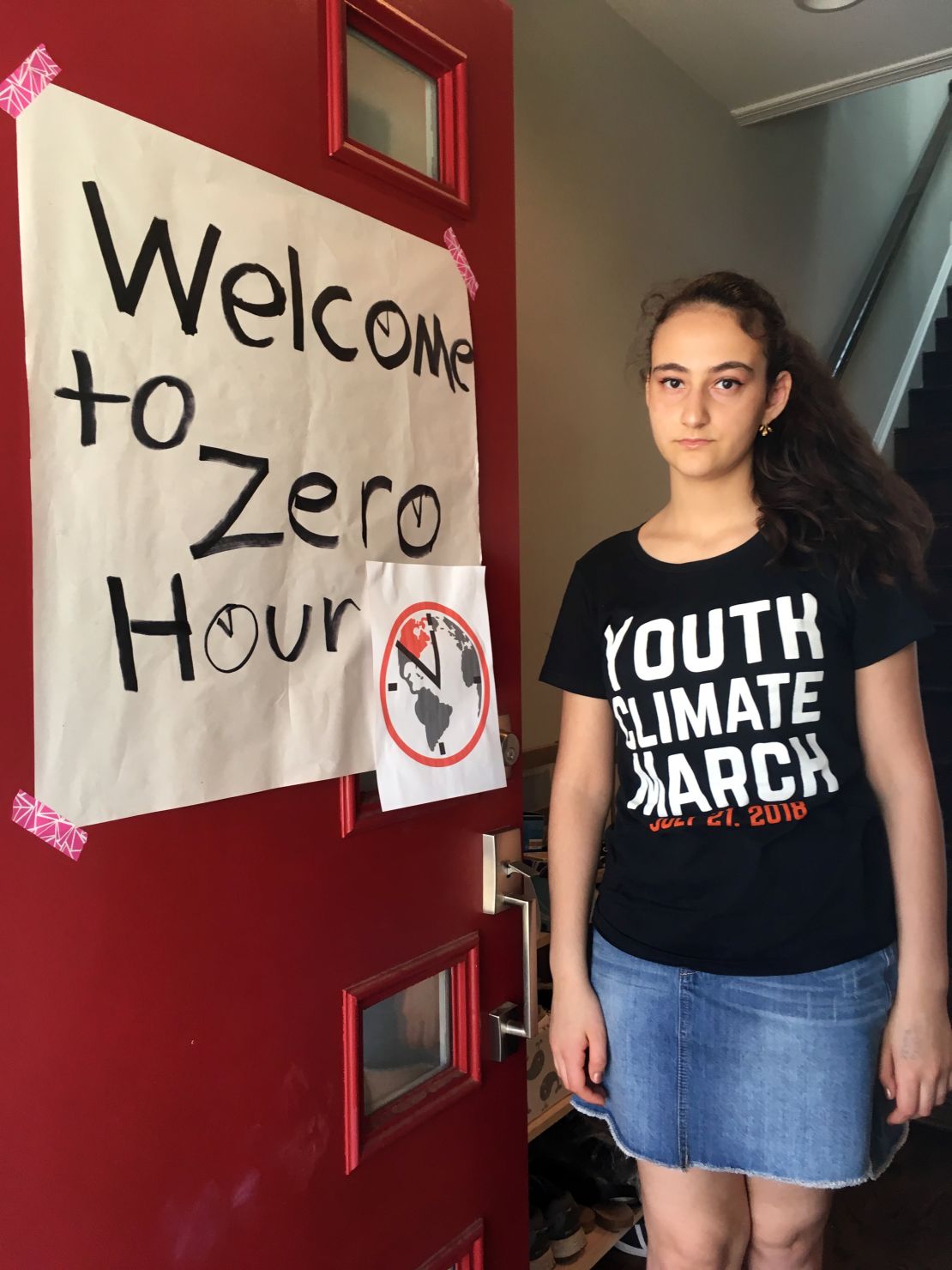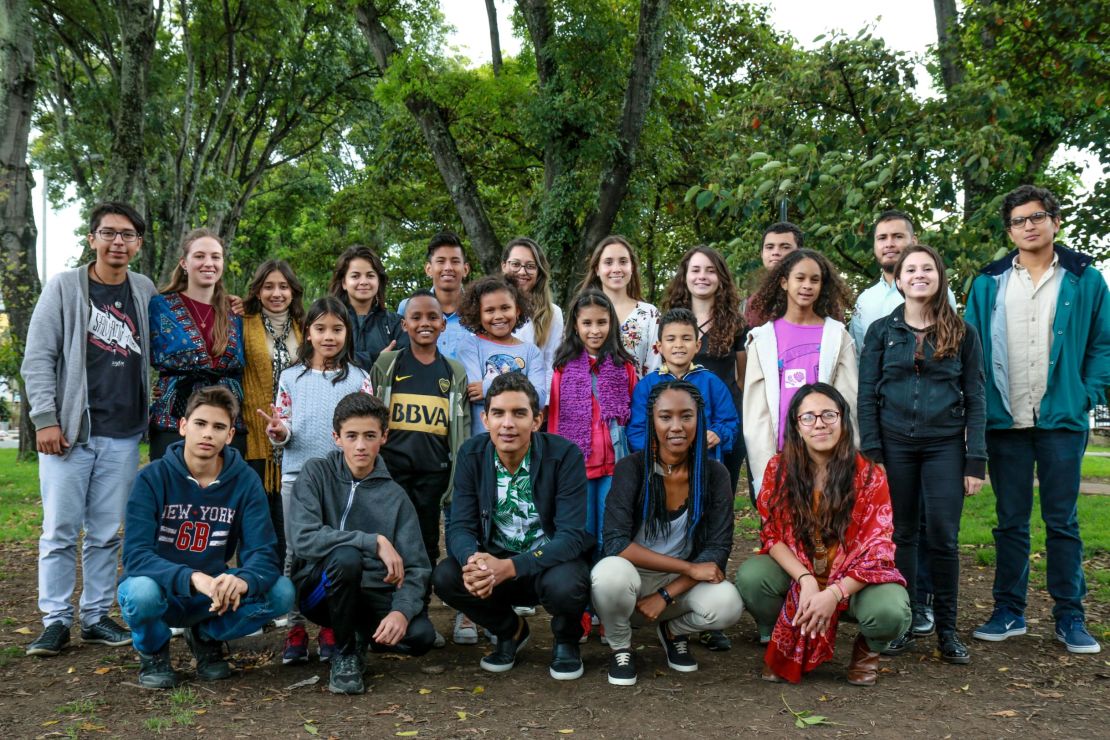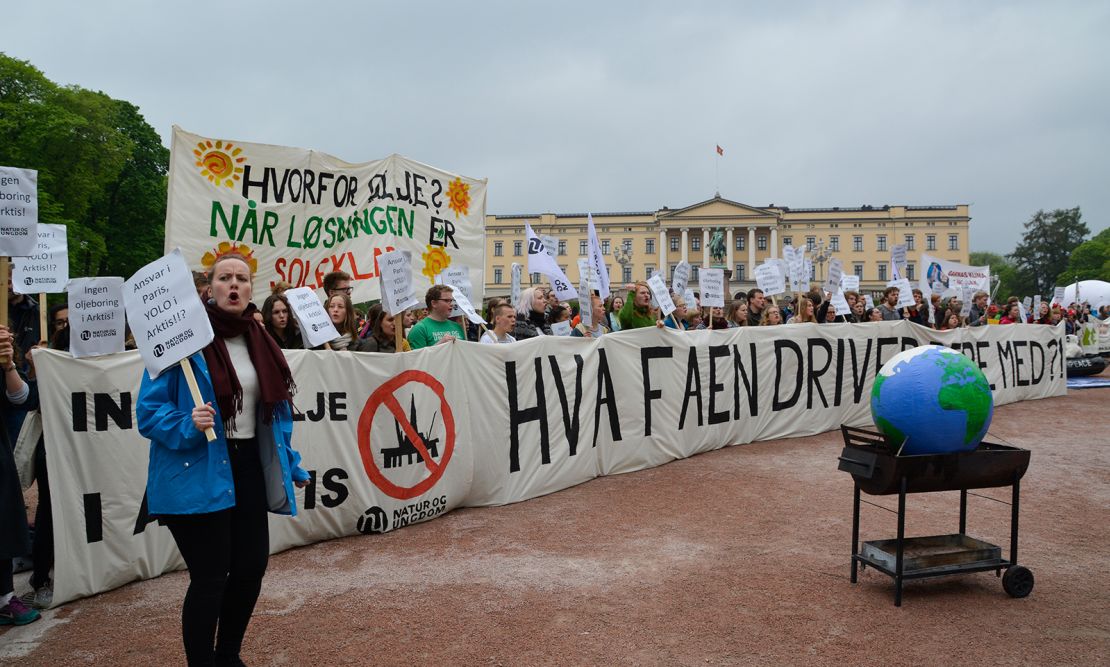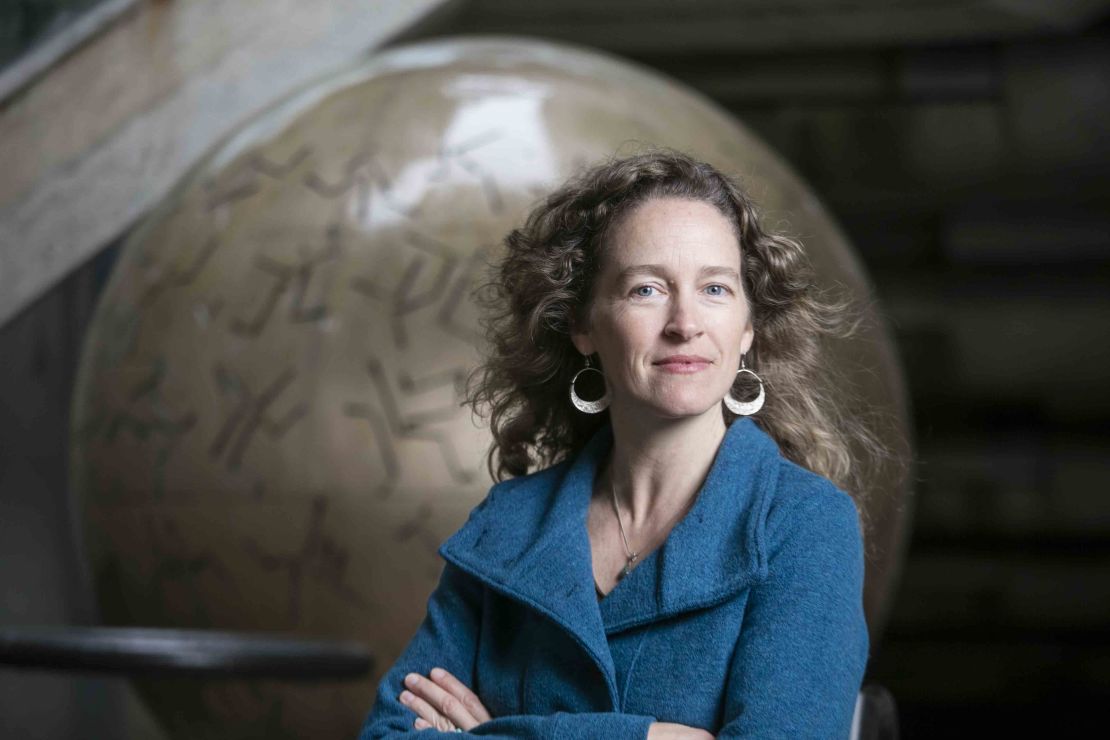At Jamie Margolin’s high school in Seattle, kids joke about inheriting a ticking time bomb.
“There’s a lot of gallows humor within high schools,” Margolin, 16, tells CNN. “It’s a weird normalization of the fact that there’s not much time left because of the climate crisis, and a lot of young people are just accepting it.”
Around the time Hurricane Maria struck Puerto Rico, Margolin decided she wouldn’t just accept it.
“When you turn on the news, it’s not like ‘Hello, the world is ending and there’s a short amount of time to fix it’ … Why is everyone not talking about this with urgency and dealing with it like the international emergency it is?”
So, together with Nadia Nazar, 16, of Baltimore, she launched Zero Hour — an organization pledging to take “concrete action around climate change.”

Last Thursday, youth volunteers from Zero Hour lobbied members of Congress in Washington, D.C., to sign a pledge to stop taking money from the fossil fuel industry.
That was the start of a three-day campaign that also included an art protest and a youth climate march from the National Mall to Lincoln Park. Sister marches also took place in New York City and London.
But Margolin’s not just organizing marches, she’s also willing to take her case to court.
The young activist is one of the plaintiffs in a youth-led lawsuit against the state of Washington. They claim that the state has violated their constitutional rights to life, liberty, property, and equal protection of the law by creating and supporting a fossil fuel-based transportation and energy system.
Washington state Gov. Jay Inslee’s communications director, Jaime Smith, says that Inslee has helped promote vehicle electrification, investments in clean energy technology, and increased transit options.
She adds: “the governor has made climate change one of his top priorities and agrees that more action is necessary to reduce carbon pollution.”
Like Margolin, other young people around the world are holding their governments legally responsible for the effects of climate change.
Related: The kids suing Donald Trump over inaction on global warming
Meet the kids suing the President
Can these kids win?
As of July, there have been over 1,000 climate change cases filed against governments, corporations and individuals in 24 countries — 888 of those cases were located in the United States, according to Columbia University’s Sabin Center for Climate Change Law.
Youth activists have been at the forefront of a number of high-profile cases, including the 21 young plaintiffs suing the US government for failing to address the climate crisis.
The US government has filed a motion with the Supreme Court to halt the trial, which is set for October 29.
In Colombia, 25 young people between the ages of 7 and 26 successfully sued the Colombian government, arguing that its failure to reduce deforestation in the Amazon threatens their constitutional rights to a healthy environment, life, food and water.
In April, Colombia’s Supreme Court gave the government five months to come up with an action plan to reduce net deforestation to zero.

The court recognized the Colombian Amazon as a “subject of rights,” meaning the rainforest has the same legal rights as a human being, and is entitled to protection, conservation, maintenance and restoration.
In Pakistan and India, two young girls have also filed petitions against their respective governments, arguing that they have been adversely impacted by climate change.
Rabab Ali, through her father, environmental attorney Qazi Ali Athar, filed a climate change petition against the federation of Pakistan and the province of Sindh in the Supreme Court of Pakistan in April 2016, when she was just 7 years old.
The petition argues that the continual use of fossil fuels — particularly from the mining and burning of coal to produce electricity — has adversely impacted the youngest generation’s right to a healthy life.
Nine-year-old Ridhima Pandey filed a petition before India’s National Green Tribunal in March 2017, asserting that the Indian government has failed to implement emissions reductions policies and mitigate climate change.
However, both cases have yet to proceed to trial. CNN reached out to the Indian and Pakistani governments for comment, but neither had responded at the time of publishing.
Other climate cases have had less success.
In January an Oslo court dismissed a lawsuit brought by Greenpeace and youth-led environmental organization, Nature and Youth, alleging that the Norwegian government violated the constitution by issuing licenses for deep-sea oil and gas drilling in the Arctic.
The court said Norway’s plans for oil and gas exploration in the Arctic were acceptable.
Related: Arctic temperatures surge in the dead of winter

The environmental organizations will argue their case before the appeals court in 2019, according to Nature and Youth.
Providing legal support
Oregon-based Our Children’s Trust helps young people around the world bring legal action against governments, and is assisting Margolin and the 12 other plaintiffs with their action against the state of Washington.
Founder and executive director, Julia Olson, tells CNN that “legal precedent exists for these kids to win every single one of these cases.”
She adds: “When you have a situation where people’s lives and personal security and other liberties and their property are being affirmatively harmed by the conduct of government in promoting and perpetuating a fossil fuel-based energy system … when you have that level of infringement of constitutional rights, the courts need to step in. They actually have an obligation to step in.”
However, Sabin Center climate law fellow Dena Adler cautions that “getting a court to recognize fundamental rights to an environment or to broaden interpretation of these rights is often an uphill battle.”
Related: Meet the mom litigating the ‘biggest case on the planet’

Olson believes that young people are more aware of the injustices in the world. “They understand not only the problem, but they understand the solutions and how we can work our way out of this mess.”
Margolin and other young climate activists around the world are testament to that.
“We’re lobbying, we’re marching, we’re in the streets, we’re in our leaders offices, we’re in the courts. We’re attacking this at every angle that we can,” says Margolin.































